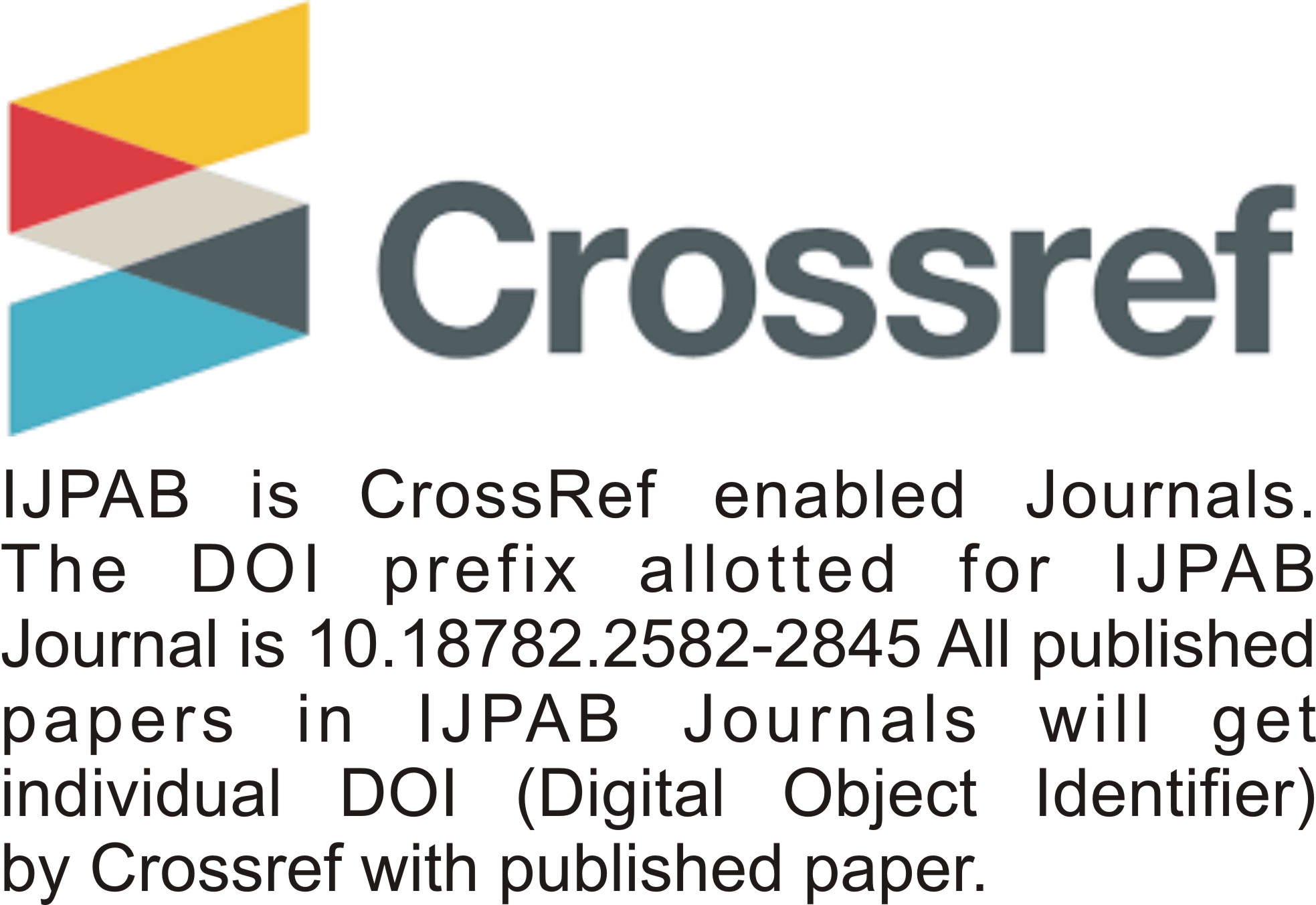
-
No. 772, Basant Vihar, Kota
Rajasthan-324009 India
-
Call Us On
+91 9784677044
-
Mail Us @
editor@ijpab.com
Indian Journal of Pure & Applied Biosciences (IJPAB)
Year : 2020, Volume : 8, Issue : 2
First page : (351) Last page : (353)
Article doi: : http://dx.doi.org/10.18782/2582-2845.8053
Effect of Different Dietary Energy Level on Growth Performance of Fattening Ram Lambs
N. Arulnathan* and M. Chellapandian
Department of Animal Nutrition,
Veterinary College and Research Institute, Tirunelveli-627 358, Tamil Nadu, India
Tamil Nadu Veterinary and Animal Sciences University (TANUVAS)
*Corresponding Author E-mail: drarulnutri@gmail.com
Received: 9.03.2020 | Revised: 15.04.2020 | Accepted: 23.04.2020
ABSTRACT
This trial was taken to assess the growth performance and economic efficiency of diets with different energy level on fattening of Mecheri ram lambs. Twenty four weaned Mecheri ram lambs were selected randomly and divided into three groups of 8 lambs in each. Animals in Group I (Low energy-LE), group II (Medium Energy-ME) and group III (High Energy-HE) were fed with the concentrate mixture having 65,70 and 75 per cent of TDN respectively and having similar crude protein level (CP-18 %) by using locally available feed ingredients and fed with chaffed Hybrid Bajra Napier Grass ad libitum as a source of roughage for a period of 90 daysin stall fed condition. Body weight were taken at fortnightly interval and Feed intake, growth performance and cost economics of different groups were assessed.The overall body weight gain and average daily weight gain were significantly (P<0.01) higher in HEwhen compare toME and LE group. It was concluded that the supplementation of concentrate could be advised for best economic returns in fattening of ram lambs.
Keywords: Ram lambs - dietary energy level- growth performance
Full Text : PDF; Journal doi : http://dx.doi.org/10.18782
Cite this article: Arulnathan, N., & Chellapandian, M. (2020). Effect of Different Dietary Energy Level on Growth Performance of Fattening Ram Lambs, Ind. J. Pure App. Biosci. 8(2), 351-353. doi: http://dx.doi.org/10.18782/2582-2845.8053

